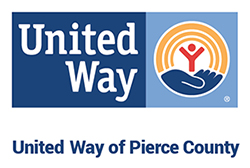
2020-2022 Community Impact Investments
Prior to the COVID-19 crisis, 11% of households were living below the poverty line, while another 23% were struggling to make ends meet. We call these families ALICE because they are Asset-Limited, Income-Constrained, and Employed. The pandemic only worsened these percentages, with many more families faced with unemployment, possible eviction and hunger. For the 2020-22 investment process, United Way invested in programs and collaborations that aligned with a single focus of increasing individual/household stability by breaking down barriers to self-sufficiency while ensuring a strong safety net of basic needs services. UWPC sought to do this work with organizations that share the same values:
· ‘WHOLE PERSON’ AND ‘WHOLE FAMILY’ APPROACH – Provide integrated services to address the whole person or family’s needs, starting by meeting basic needs to solve for the immediate crisis and then supporting the person or family in moving toward stability and – eventually – self-sufficiency.
· CLIENT-CENTERED SERVICES – Place clients at the center of our work. Deliver services in a way that are respectful of and responsive to the preferences, needs and values of those receiving services.
· COLLABORATION - Choose collaboration as a method by which to move individuals/households farther along the continuum toward self-sufficiency. Strive for innovation and look to find new ways of working to develop common solutions to community needs.
· DIVERSITY, EQUITY & INCLUSION – Create and maintain an inclusive environment that is curious about, welcoming to and supportive of differences in the pursuit of shared community aspirations by understanding, honoring, engaging and including the richness and diversity of communities served.
Neighborhood Networks
Unemployment, lack of affordable housing, cuts in public transportation, high costs for childcare and other factors have resulted in high-need, low-access neighborhoods where families struggle to make ends meet. Limited resources in some communities, along with lack of municipal and government support, means that neighborhood residents need to work together to leverage resources and create their own plans to meet their needs and to develop ‘social capital’. Building on the momentum of working together to move families out of poverty, UWPC offered a new opportunity for existing neighborhood coalitions to apply for funding to support place-based, collaborative work designed to move residents from crisis to stable to self-sufficient. Among the most effective ways to create social change are grassroots, neighborhood-driven groups because the people most affected by a problem are in the best position to determine solutions.
Children's Home Society of WA
Key Peninsula Neighborhood Network
Communities in Schools of Tacoma
Southeast Tacoma Neighborhood Network
Franklin Pierce 2-Generation Collaboration
The Franklin Pierce district is the only Title I school district in Pierce County, with more than 70% of students qualifying for USDA free school meal programs. The FPS footprint is also ranked high in a number of negative social, environmental and health indicators, creating a difficult environment for children and families to thrive. As an unincorporated community, FPSD has no municipality to provide resources and support. Additionally, the Parkland/Spanaway area is not a walkable community, featuring many busy thoroughfares without proper lighting or sidewalks. Public transit is almost exclusively limited to the Highway 7/Pacific Avenue corridor, meaning neighborhoods located miles off the main road are cutoff. Families in this area face multiple barriers to self-sufficiency from transportation to access to needed services and resources to lack of quality childcare and OST (out of school time) opportunities for children.
Children who grow up in poverty are more likely to be poor as adults. While even a few years in poverty can have a significant impact on a child’s economic trajectory, the risks are particularly high for those who experience many years of poverty. Inspired by the Two-Generation Approach developed by the Aspen Institute, UWPC works collaboratively with health and human services providers, school district representatives, faith-based groups, government agencies and others committed to collecting, sharing and analyzing data to design an approach that bridges gaps and creates opportunities to stabilize families by meeting the needs of children and parents TOGETHER. Combined with a focus on educational success, health and wellbeing we will reduce the incidence of children in our community who remain in the cycle of poverty into adulthood.

